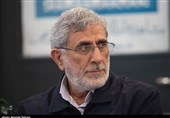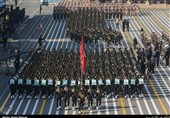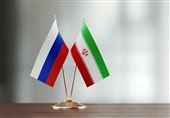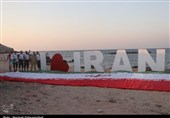Erdogan Death Penalty Vow Likely to Be Tough Sell in Turkey
TEHRAN (Tasnim) – Immediately after winning Sunday’s referendum, Turkish President Recep Tayyip Erdogan promised to reinstate the death penalty, a reform put in place 15 years ago that was seen as fundamental to Turkey’s efforts to join the European Union.
The move would be sure to delight his fans, who called for it repeatedly at campaign rallies. But by effectively ending Ankara’s decades long EU accession bid, it could be a tough sell to the millions of Turks in bustling port cities, trade and tourist hubs who voted “No” in Sunday’s vote.
Preliminary results show a slim majority of 51.4 percent of Turkish voters voted “Yes” to granting the presidency sweeping powers, the biggest overhaul of the country’s politics since the founding of the modern republic.
“Our concern is not what George, Hans or Helga says,” Erdogan told flag-waving supporters on the steps of his presidential palace Monday, Reuters reported. “Our concern is what Hatice, Ayse, Fatma, Ahmet, Mehmet, Huseyin, Hasan says, what God says,” he said. He has promised a debate in Parliament on the issue or, failing that, another referendum.
But Europe would not be the only source of resistance to Erdogan’s plans. Turkey’s biggest cities – Istanbul, Ankara and Izmir – voted “No” Sunday, along with industrial heartlands, tourist hotspots and ports in 33 provinces, outward-looking regions that have thrived on strong relations with Europe and are increasingly fearful of the future.
More than 320 of Turkey’s 500 largest industrial companies are based in cities that voted against the constitutional changes, 181 of them in Istanbul.
“For years, we have worked on getting ourselves integrated with the world,” said Serafettin Asut, head of the chamber of commerce and industry in the Mediterranean city of Mersin, home to one of Turkey’s largest international ports.
“We have made progress in foreign trade. We constantly think about how to improve ourselves. When you look at it from this perspective, bringing up the death penalty again would not really be received well,” Asut said.
More than 64 percent of Mersin’s electorate voted “No” in the referendum, a surprise outcome in a city that had voted largely for the ruling AK Party, which was founded by Erdogan, in a November 2015 general election. “People [in Mersin] turn their face toward the outside world but at home they see a different story,” Asut said.
Tourist centers such as the city of Antalya, through which some 6 million foreign visitors entered the country last year, also overwhelmingly voted “No.”
The main secularist opposition CHP party and the pro-Kurdish opposition HDP are seeking to annul the referendum, while the bar association and international observers have said the vote was marred by irregularities.
Erdogan has said the vote Sunday ended all debate, however, telling European observers who criticized it: “Talk to the hand.”
There have been sporadic protests against the outcome in cities, including Istanbul, Ankara and Izmir.
“The AK Party is increasingly failing to attract the voters of big cities,” said Murat Gezici, head of pollster Gezici, which correctly predicted the outcome of the referendum.
“They tried to convince the masses through patriotic and conservative values and the voters have perceived this as an indication of AK Party’s future policies – turning its face away from the West,” Gezici said.
If Erdogan presses ahead with reinstating the death penalty, the AK Party will need to either pass a bill through Parliament, for which it does not have the votes alone, or hold another referendum, which he could swing with the backing of the nationalist MHP party, which has supported the idea in the past.
In the latest referendum, however, Erdogan was only able to get the support of 35 percent of MHP voters, according to Gezici, indicating that the backing he bet among the nationalists may not be there.
A hero for many in Turkey’s pious working class, Erdogan has over the years also won support from liberal businessmen. His reform-oriented early years in power as prime minister from 2003 brought stability and attracted foreign investment.
But confidence has been dented by the worsening ties with Europe, mounting concerns about political freedom and civil rights after last year’s failed coup, a resurgent conflict with Kurdish militants, and the threat from Daesh (ISIL or ISIS) in neighboring Syria and Iraq.
One businessman in Turkey, who runs a medium-sized textile company with around 150 clients based in Europe, said he had recently set up a company in Germany because of the deteriorating environment.
“It is a precaution in case relations between Turkey and the EU sour further and affect trade,” he said, asking not to be identified because he feared retribution from customers who are loyal Erdogan supporters.
“I don’t expect something as severe as an embargo,” if Turkey were to restore the death penalty, he said. “But I now have a safety net for my business in case things between Turkey and Europe gets much worse.”
Hurriyet columnist Murat Yetkin said Erdogan may have won the referendum, but some big challenges lie ahead.
“Now Erdogan will have to rule the part of Turkey most open to the world, with the highest cultural production, export capacity, tourism revenue and industrial output, with a constitution approved by its most introvert part,” he wrote.





